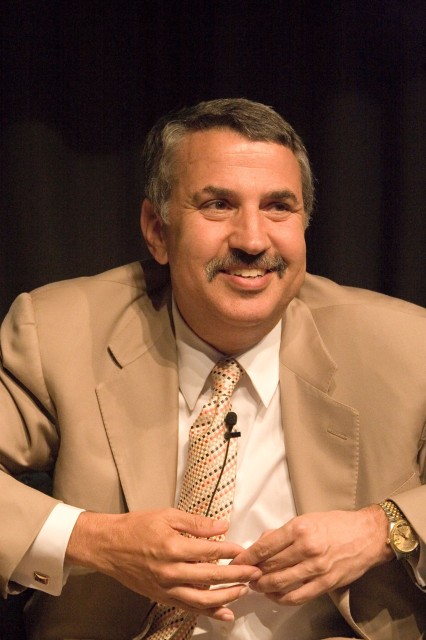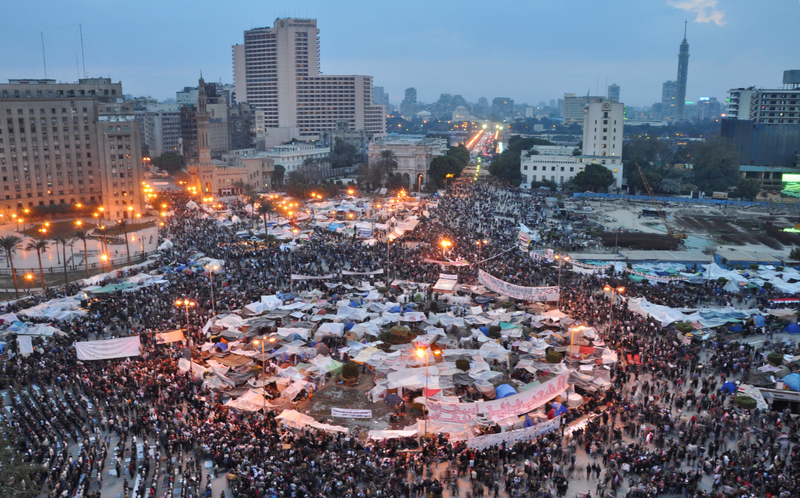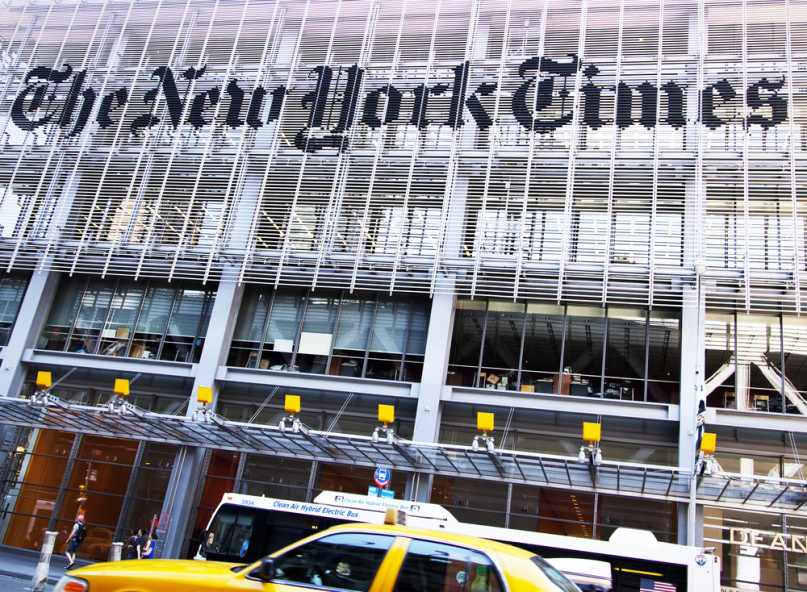One should never confuse corporate American media’s coverage with the reality of the lives of many people beyond their pale: the lives of American poor, immigrants, undocumented people, and post-colonial people remain largely obscured.
One would think that Islam would be an exception to this, since after all there has been an almost constant obsession with Islam and Muslims since the 1978 Iranian Revolution. But alas, there are some lingering assumptions that derail this analysis.
Every now and then, I am taken back by the sheer degree of transparent racism. Case in point: today’s New York Times op-ed on Egypt.

David Brooks from Wikipedia courtesy Wikipedia
The writer is David Brooks, who twice in a short column uses the “mental” deficiency of Egypt and Egyptians in their march towards democracy. The first usage is attributed towards Islamists. The second one is more absolute, less equivocal:
“It’s not that Egypt doesn’t have a recipe for a democratic transition. It seems to lack even the basic mental ingredients.”
As for the United States who for decade after decade supported the tyrannical regime of Mubarak, here is Brooks’ gracious comments: “The most important thing outsiders can do is promote those people and defend those people, decade after decade.”
What is perhaps most frustrating is the extent to which this language of “mental” deficiency is simply a continuation of a colonial apologia where Western countries colonizing and occupying, Muslim (and other) countries justified their lingering oppression by stating that these countries “were not ready to rule themselves”, “lacked the mental qualifications needed for self-governance”, etc. The “lack of mental qualifications” is part and part of colonial—which is to say, unjust and oppressive—worldview, and it must be exposed and dismantled before we can embrace a more holistic and humanistic paradigm.
This mindset was not just applied to Muslim societies, where the British stayed in Egypt for 70-plus years, and the French stayed in Algeria for 130-plus years. It was also in Vietnam, and Dr. King correctly diagnosed the arrogance of the American Empire in holding that the Vietnamese “were not ready to rule themselves.”
Not only is this worldview racist, it is also inaccurate. The truth of the matter is that there is a profound transformation underway in Muslim majority societies: It consists of millions of people from broad cross-sections of society pouring out into the street, and articulating their own highest hopes and aspirations in the most universal language of freedom, dignity, rights, and equality. It is not by any stretch of imagination a finished revolution, and as the Egyptians have been saying, The Revolution Continues… How quickly we forget that the American Revolution itself was a process that took decades to reach a conclusion.
Similarly unhelpful is Tom Friedman’s recent plea about the failure of “Islamism” in the Middle East.

Thomas Friedman courtesy Wikipedia
I find the label “Islamist” to lump together Iran, Muslim Brotherhood, and Turkish AKP to be so absurd as to obscure rather than illuminate. These are distinct movements, with distinctions that are as profound as any similarities.
Time and again we hear New York Times (and other Western media pundits) lamenting that democracy is a Western monopoly, and that Muslims are incapable/unable of engaging it.
The best indication of what we have about some of these values being universal is simple: listen to what people on the streets of Cairo, Tehran, and Istanbul have been demonstrating about over the last few years: freedom, dignity, democracy, liberty. Yet Friedman and his ilk (and much of the American think tank culture) is fearful of what a genuine democratic movement in Muslim-majority contexts would look like, since it would almost certainly come along with a popular demand for having US military presence out of their region, to adopt a genuinely peace & justice based approach to the Palestine/Israel issue, and move away from an American hegemonic approach to the world.

Tahrir Square courtesy wikipedia
To acknowldge that popular will would run against American-privileged views of many pundits. Therefore, we hear this absurd language that democracy is somehow a “Western” value, that Muslims are not “prepared” for it, and the best that brown/Muslim/colonized people want/deserve is autocratic rule.
So where to turn? Reading this blog, of course. And also: I suggest reading Juan Cole, Democracy Now, and many of the blogs on Aljazeera instead. If you have access to a relatively high speed internet, you can also watch Aljazeera’s often superb analysis.
The line between news and analysis is now forever blurred. The best we can hope for, and indeed demand, is that our analysts utilize perspective that convey—rather than obscure—the humanity of us all.





